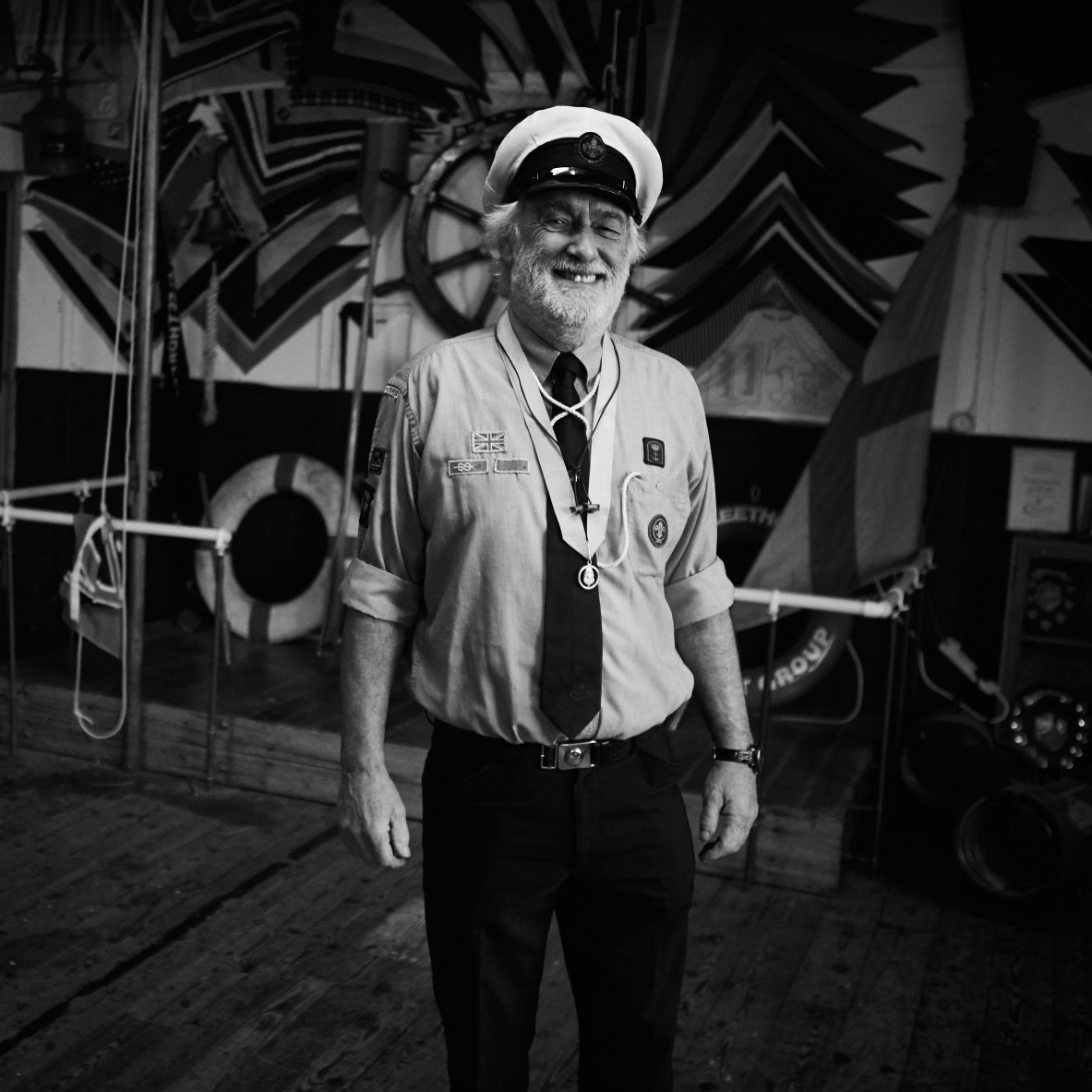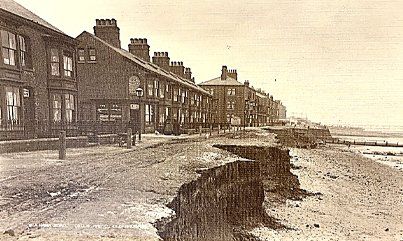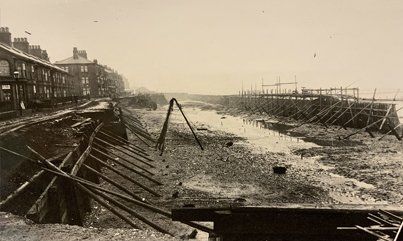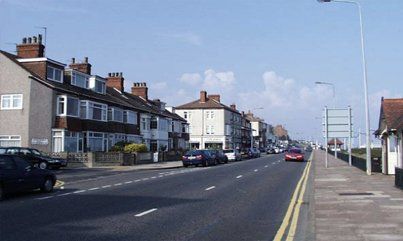Grimbarians Blog
Mr Grimsby - Mr Cleethorpes - The Railway King

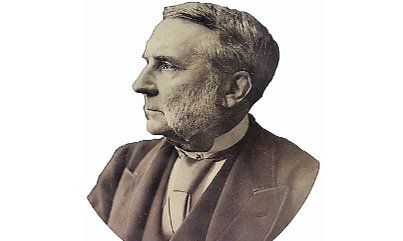
Following on from our Grimbarians Through Time post, Geoff Scargill (From the Watkin Society) delves a little deeper into 'Mr Grimsby'
Those are three of the titles that could be pinned on Sir Edward Watkin, one of the most dynamic and exciting characters of the dynamic and exciting Victorian Era. At his death over 150 tributes to him were published throughout the world. They were celebrating a lifetime of extraordinary achievements and equally extraordinary failures.
Now, a group of local people have set up ‘The Cleethorpes and Grimsby Watkin Group’. Their aim? To bring Edward Watkin’s achievements to the notice of all Grimbarians and Meggies.
Nationally, you can take your pick from: the first Parks for the People in Manchester, a hell-hole for ordinary families; Saturday afternoons free from work (that was the start of 3pm kick-offs for football matches); keeping the price of bread within the reach of the starving poor; building the Great Central Railway from Manchester to London; trying to build an Eiffel Tower in London (it became Wembley Stadium and its foundations are still under the present pitch) and to dig a Channel Tunnel in 1880. And to get votes for women in 1867.
Internationally, Watkin advised governments on new railways in the West Indies, India and Africa, he built the longest railway in the world and played a key role in creating a vast new country: the Dominion of Canada.
Amazingly, much of Watkin’s legacy in Britain and abroad has been forgotten, including his tremendous successes in one corner of Lincolnshire, where ‘Mr Grimsby’ and ‘Mr Cleethorpes’ literally created the biggest fishing port in the world and one of Britain’s best-known family holiday resorts.
Two characteristics drove Watkin on in his public life.
The first was a need, almost a compulsion, to win. That made him an exciting risk-taker. The second was his genius for spotting potential. It was that which led him to transform Grimsby and Cleethorpes.
As general manager and then chairman of the Manchester, Sheffield and Lincolnshire Railway Watkin re-created the town of Grimsby. One writer said: “Under Watkin’s supervision the town was transformed from a muddy Georgian wilderness into an international Victorian success.”
The Watkin statistics are stunning:
- The town’s population shot up from 8,860 in 1851 to 63,000 in 1901.
- Over a billion pounds in today’s money was spent on the Grimsby docks.
- The vast area of West Marsh was drained.
- The tonnage of vessels in 1855 was 188; in 1891 it was 64,000.
- In 1856 fifteen hundred tons of fish were landed in Grimsby; in 1875, 35 thousand.
- Trade in coal, grain and manufactured goods increased ten-fold and new luxury passenger ships sailed daily to and from the Continent. This poster from the time is on display in the sole remaining building of Watkin’s original station at Cleethorpes, now the Number 1 pub.
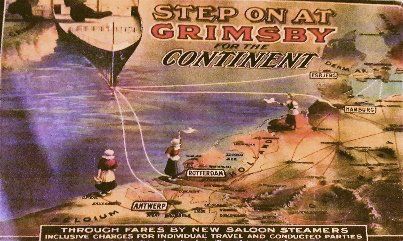
On 8 April 1891, at a special meeting of the Council, the Borough of Grimsby made Edward Watkin an Honorary Freeman of the town. The citation reads: “Grimsby is a monument of Sir Edward’s enterprise and foresight”. He had earned the title of ‘Mr Grimsby’.
But Edwards Watkin’s work as ‘Mr Cleethorpes’ was even more dramatic.
The coming of the railway to Grimsby in 1848 marked the start of a new era for Cleethorpes. Newcomers who had taken up jobs in the docks at Grimsby came on foot or by coach for day trips to enjoy the sands and the fresh air. This is where Watkin’s second great characteristic, his genius for spotting potential, comes into the story. In 1863 he extended his railway from Grimsby but he built the station not in the centre of Cleethorpes but right next to the sea. The position of the station and the date of its opening, Easter Monday, the first bank holiday after the winter, were both what we would call today: statements. The future for Cleethorpes was going to be holidays.
But Watkin’s support did not end with the new station. In 1872 Cleethorpes pier opened, paid for by Watkin’s railway.
But Cleethorpes, in common with many other towns on the East Coast of England, suffered from a constant threat to its existence: erosion by the sea. In 1883 Watkin paid for a concrete wall all along the sea front. His new sea defences made the town and its future secure.
The new sea wall also created space for a foreshore safe for recreation. Watkin personally took over the building of a promenade (lit by electricity), swimming baths and public gardens. He even constructed a mock ruined castle on the highest point of the cliffs and named it after the secretary of the railway.
Watkin spent the equivalent of £12 million of the railway company’s money on developing Cleethorpes into a holiday resort for all the family. But not just for Grimsby. His horizon was the hundreds of thousands living in Sheffield and Nottingham. On one Saturday in the 1890’s, 30,000 visitors came to the town, all with tickets bought on Watkin’s railway. People called it Sheffield-on-Sea. The man who created modern Cleethorpes has earned the title of ‘Mr Cleethorpes’.
Would you like to know more about Edward Watkin? The national Watkin Society’s website is under construction at www.watkinsociety.org.uk A new book Victoria’s Railway King sets out the successes and failures of his life and goes behind the public image to reveal someone subject to depression and self-doubt.
Locally, you can contact the new Cleethorpes and Grimsby Watkin Group for information about their plans on gscargill@gmail.com. Grimsby Local History Library has collected its extensive Watkin resources as ‘Watkin references’ in their People newspaper cuttings (Libraries@lincsinspire.com 01472 323603). A pilot scheme organised by Heritage Lincolnshire has used Watkin's local achievements to encourage young people to discover pride in their heritage. This has proved so successful that an even more ambitious scheme is planned for 2023.
And next year also marks the 175th anniversary of the year the railway came to Grimsby.
Two more reasons to celebrate the amazing life of Edward Watkin.
